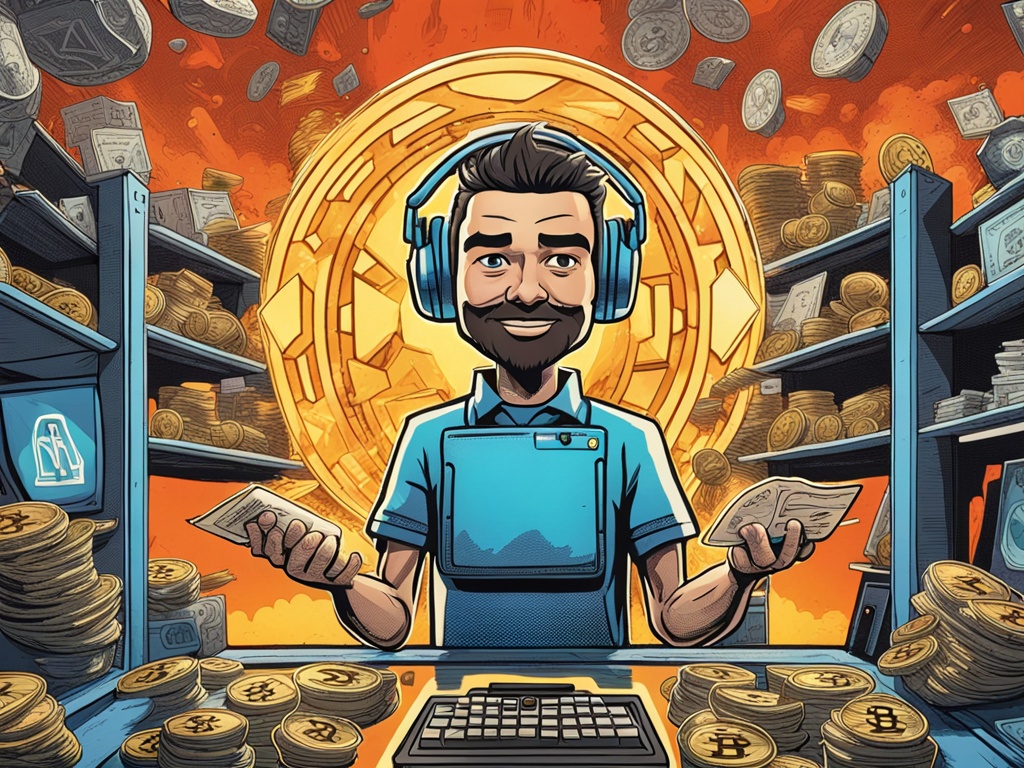What Happens When a DAO Faces Legal Reality? A New Era for Crypto Governance
Alright, let’s dive right into it. Imagine you’re hanging out with your buddies, brainstorming about that latest crypto project you’ve all invested in. Everyone’s excited, talking up the incredible returns they’re going to get from staking and governance. Now, out of nowhere, you hear about a court ruling that might turn the whole concept of decentralized Autonomous Organizations (DAOs) on its head. What does that mean for your favorite projects and the entire crypto space?
Key Takeaways:
- Legal Classification of DAOs: A federal court has ruled that Lido DAO, a major player in liquid staking, can be treated as a general partnership, raising serious questions about the legal standing of DAOs.
- Implications for Investors: This ruling indicates that investors participating in DAOs may face increased liability.
- Shift in Governance: The decision could significantly impact how DAOs are structured and operated moving forward.
So, the drama unfolded when a jury had to decide if Lido DAO was just another collection of crypto enthusiasts chasing profits or an actual partnership under California law. Spoiler alert: they decided it’s the latter. Basically, this ruling means that Lido can be held liable for how it manages investor funds. This is huge—it’s like a cozy night-in Netflix binge suddenly interrupted by a knock at the door from the authorities.
The Court’s Decision and Its Fallout
Judge Vince Chhabria’s ruling points to something fundamental in the crypto world: just because a project operates under the veil of decentralization, doesn’t mean it gets to escape legal accountability. Participants and investors might now have to think twice about how involved they are in governance. The judge noted that if folks are actively managing a DAO, they can’t just hide behind that decentralized structure. Talk about a wake-up call!
- Key Points from the Ruling:
- The court recognized identifiable participants were managing operations, making them liable.
- Any sort of participation, even as inconsequential as posting in a forum, could hold DAO members accountable under general partnership laws.
- Big names like Andreessen Horowitz and Dragonfly Digital Management were tagged as general partners, indicating an active role in Lido’s operations.
Potential Impact on DAOs and Investors
Now, for us everyday investors, what does this mean? Well, that cozy feeling of participating in a DAO could turn into a sudden panic if things go sideways. The fear here is that this ruling could deter many from participating in governance roles. Imagine this as a ripple effect; it might even stymie innovation within the space. After all, if you think you could be responsible for significant losses just because you offered an opinion in a discussion board, are you really going to stick your neck out?
Practical Tips for Investors
If you’re heavily invested in DAO projects or thinking about joining one, here are some sound tips to keep in mind:
- Understand Governance Structure: Before diving in, research how a DAO operates. Who’s really calling the shots?
- Know the Risks: The legal landscape for DAOs is rapidly evolving. Stay informed on recent rulings or regulatory changes that might affect your investments.
- Limit Your Liability: If you participate in a DAO, consider how active your involvement is. The less you participate, the potentially lesser your liability, albeit it can feel counterintuitive.
- Diversify Your Investments: Just like you wouldn’t put all your eggs in one basket, don’t bank all your portfolio on a single DAO.
Personal Insights
As a young guy navigating this wild west of crypto investing, this judgment rattles me a bit. I think back to all those nights spent analyzing tokens, dreaming of staking rewards, and making decisions in community forums. A lot of my friends are involved too. It’s like we built this cool, supportive community, but now we might have to wall ourselves off a bit more if we have to worry about legal repercussions. I can’t help but feel a mix of optimism and trepidation.
There’s something to be said about taking personal responsibility as an investor, but the balance of innovation versus regulation is precariously tilting. Will regulatory scrutiny lead to a crackdown that might stifle the creativity in crypto, or will it usher in safer landscapes for us to play in?
Conclusion and Reflection
At the end of the day, the lesson here is that while the world of crypto is exhilarating, it comes with its fair share of risks—legal ones included. So, what do you think? Is this court ruling a necessary step for accountability, or could it be the nail in the coffin for the decentralized dream? Pull up a chair, grab a drink, and let’s chat about it. The future of DAOs and how we operate them might just depend on conversations like these.





 By
By
 By
By
 By
By
 By
By
